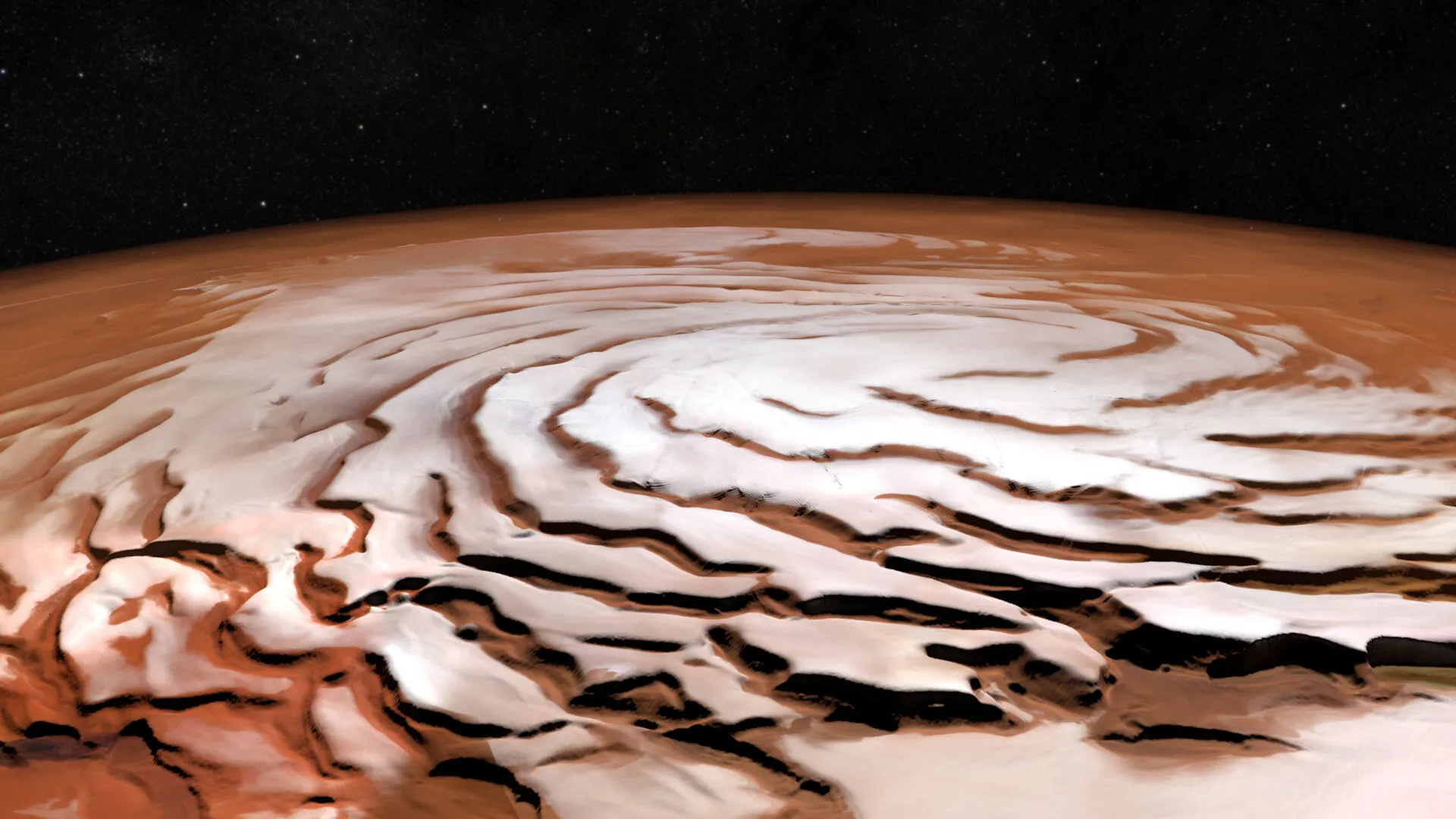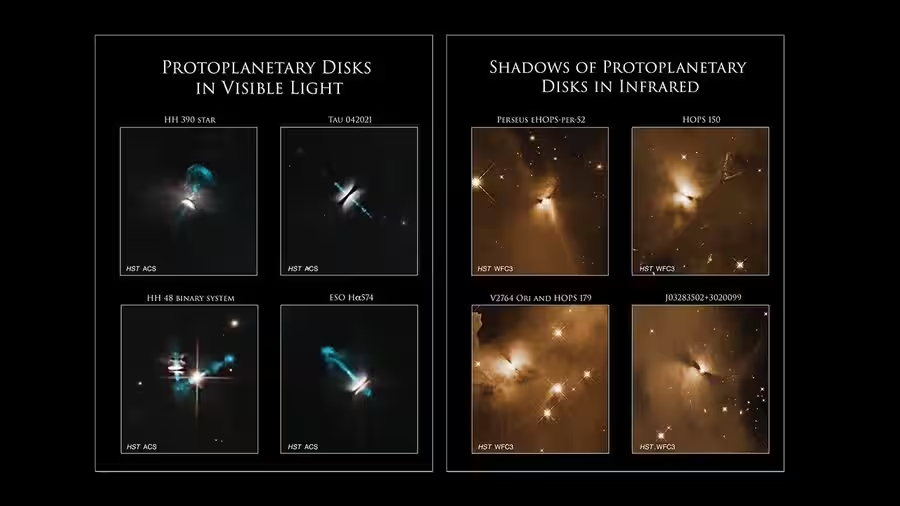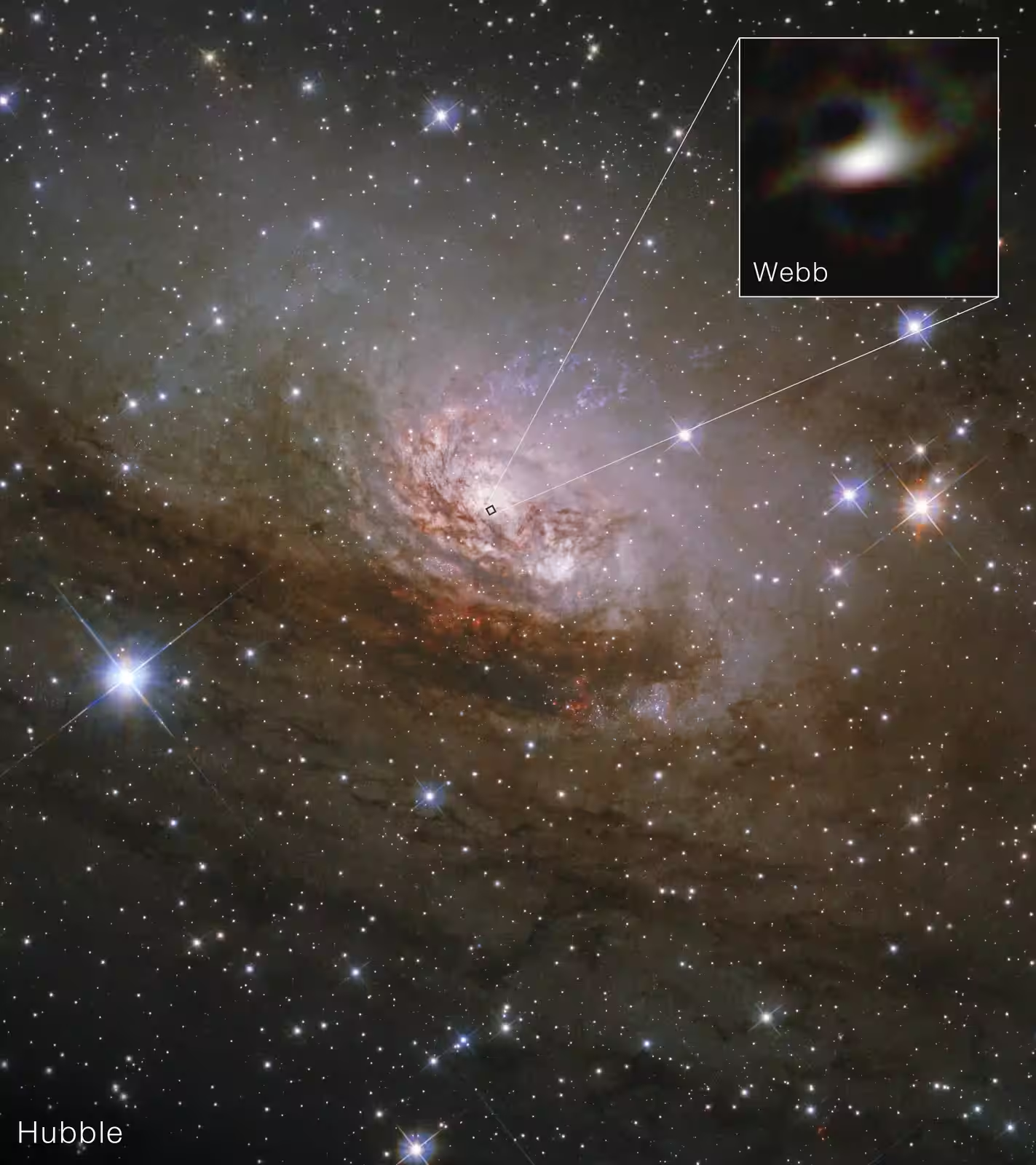Mars’ northern ice cap turns out to be surprisingly young

A new study by scientists from the German Aerospace Center (DLR) has revealed that Mars’ northern polar cap is much younger than previously thought. Using methods similar to those used to study glaciers on Earth, the researchers found that an ice sheet up to 3 kilometers thick is “pushing through” the planet’s surface at a rate of 0.13 mm per year. This indicates that Mars’ mantle beneath the crust is extremely viscous – 10 to 100 times more viscous than Earth’s. How do glaciers tell us about the planet’s interior? On Earth, a process known as glacial isostatic adjustment occurs when the surface deforms under the weight of glaciers and then “bounces back” after they melt. For example, in Scandinavia, the land […]
Material Mars’ northern ice cap turns out to be surprisingly young was first published on ITZine.ru.








